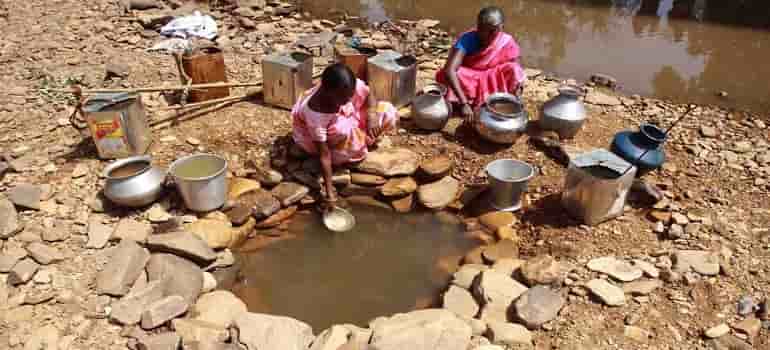Rehaan, an IB student from Canadian International School, Bangalore, creates an innovative website to track and tackle the city’s groundwater depletion, empowering citizens and policymakers with actionable data.
Bangalore, often hailed as India’s Silicon Valley, faces a mounting groundwater depletion crisis that threatens its community and ecosystem. The city suffers from infrequent and insufficient water supply, with a staggering daily deficit of 500 million litres—approximately 20% of its water consumption. Tackling this critical issue requires innovative approaches, and Rehaan, an IB 2 student from the Canadian International School (CIS), Bangalore, has risen to the challenge with a groundbreaking project.
Rehaan has launched an internet platform, The Groundwater Project, which compiles data and insights from the Central Ground Water Board (CGWB) and independent researchers. The website highlights the alarming state of Bangalore’s groundwater resources, with all administrative regions classified as overexploited by CGWB in consecutive measurements from 2016-2017, 2020, and 2023.
The State of Groundwater in Bangalore
Rehaan’s research underscores the dire situation. Between 2020 and 2023, most taluks reported zero reserves for future consumption. Nelamangala, for instance, dropped from 109.46 hectare-metres (HAM) of available water in 2020 to none by 2023. Meanwhile, Bangalore South witnessed a surge in domestic water demand, increasing from 148.06 HAM in 2020 to a staggering 850.10 HAM in 2023. In contrast, Bangalore East saw a decline in domestic consumption but a rise in total usage due to industrial activities.
Compounding the problem, the city’s annual groundwater recharge decreased from 5,185.66 HAM in 2020 to 4,790.51 HAM in 2023, further exacerbating the water crisis.
Inspiration and Innovation
Rehaan’s inspiration for the project stemmed from the severe water shortages in Bangalore in 2024. Living in a rural residential community reliant on a borewell, he witnessed firsthand the challenges of water scarcity. This experience motivated him to create an accessible and interactive platform to promote awareness and action.
The website provides critical data on net groundwater draft, replenishment rates, rainfall, and per capita water consumption. It also allows users to map their locations, track water usage, and compare it with area averages. A unique crowdsourcing feature enables residents to contribute data about their water consumption, fostering a community-driven effort for conservation.
Empowering Action and Collaboration
Rehaan envisions the platform as a tool for citizens, policymakers, and environmental groups. Policymakers can use the data to identify areas needing urgent intervention, while citizens can better understand their local water situation and take proactive steps.
“I envision this platform being used by the public to increase their awareness of their local water situation and incentivise citizen-led action,” said Rehaan. “Policymakers could use this information to guide interventions and legislation, while environmental groups can leverage it for public service announcements and grassroots engagement.”
Support and Future Plans
The initiative has received accolades from the Canadian International School. “It is amazing to see the innovation of our students shine through to develop sources of information and action to help everyday citizens be more proactive and aware of sustainability issues,” said Ms. Shweta Sastri, Managing Director, CIS.
To amplify the platform’s reach, Rehaan plans to collaborate with organisations involved in citizen science and water conservation. He also intends to leverage social media to raise awareness about sustainable water management.
Bangalore’s water crisis demands a coordinated effort from citizens, industries, and the government. Rehaan’s initiative is a step in the right direction, offering a data-driven approach to address the crisis and ensure sustainable water resources for future generations.


